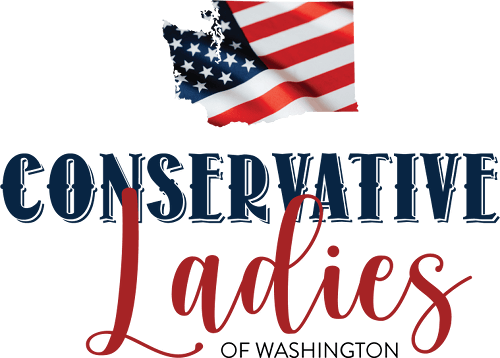On November 12, 1997, in Schenectady, New York, an eighteen-month-old tabby cat named Buster was outside doing what curious cats do–running, hiding, playing with other cats and wondering when he’ll get to eat again. On this particular night, a sixteen-year-old boy named Chester Williamson observed Buster, grabbed him, doused kerosene all over his body and lit Buster on fire with a cigarette. Buster was found by a neighbor under a car and immediately rushed to the vet. He was so badly burned, he had to be identified by his large nose and number of toes. Buster lingered for three weeks but finally succumbed to his injuries. This led to a new law called, Buster’s Law. In 1999, Governor Pataki signed the new so-called “Buster’s Law” or “Felony Cruelty to Animals Law.” (Ref: https://tuesdayshorse.wordpress.com/2009/01/13/horses-have-a-hero-in-new-yorks-tedisco-us/)
In the case of Buster’s Law, Nancy Bonesteel took her shocking experience of what happened to her cat and made a difference in the laws concerning animal cruelty. Buster’s Law brought attention to another aspect of animal cruelty. Aside from the injuries to the pets themselves, there is evidence that violence against animals can be a precursor to violence against humans. Activists need look no further than Buster’s tormentor, Williamson, to support their argument. In 2003 and 2005, Williamson was sent to prison on stolen property and burglary convictions, sentenced to up to three years in both cases. Then, on Sept. 28, 2007, just a few blocks from where he attacked Buster, Williamson, then 26, lured a 15-year-old into Vale Cemetery under the pretext of looking for her sister and attempted to rape her. Officers searching the cemetery came upon Williamson and the girl, breaking up the attack. Williamson is now serving in the state prison.
https://dailygazette.com/article/2009/12/19/1220_buster
What is a Citizen Lobbyist?
A citizen lobbyist is a person who tries to get legislators to introduce or vote for measures favorable and against measures unfavorable to an interest that he or she represents. What drives citizens to become lobbyists? Usually, it is passion for an issue that resonates with their personal or professional lives. This passion often comes because of traumatic personal experiences or deeply held beliefs about justice and personal freedoms.
In the last twenty years, tragedy has met several parents, and some of them have used what happened to their children to start foundations and change laws. In September 2006, 19-year-old Brodie Panlock ended her life after enduring ongoing humiliating and intimidating bullying by her co-workers at a café in Hawthorn, Victoria. Brodie was insulted and ridiculed, teased about her looks, held down while fish sauce was poured over her, teased about a failed suicide attempt, had rat poison put in her bag while being taunted about being unable to kill herself. They regularly insulted her by calling her fat, stupid, ugly, and a whore.
The tragedy of Brodie’s death was compounded by the fact that none of those responsible for bullying Brodie were charged with a serious criminal offense under the Crimes Act 1958. Instead, each offender was convicted and fined under provisions of the Occupational Health and Safety Act. Brodie’s death was a tragic reminder of the serious consequences that bullying can have on victims, their families and the community and illustrated that there were obvious limitations in the law and conduct involving serious bullying and should be subject to criminal sanctions. Because of public outrage and aggressive citizen lobbying, Brodie’s Law commenced in June 2011 and made serious bullying a crime punishable by up to 10 years in jail.
In the United States, there have been other laws enacted named after victims. Megan’s Law is named after seven-year-old Megan Kanka, who was raped and killed by a known child molester who had moved across the street from the family without their knowledge. In the wake of that tragedy, the Kankas sought to have local communities warned about sex offenders in the area. All states in the U.S. now have some form of Megan’s Law.
Passion for an issue doesn’t need to stem from adversity. There are thousands of issues that concerned citizens can work on to make a change. The first question to ask is, “What issue brings out an emotional response when there is a discussion or debate?”
In this last year of 20/20, state government has brought down questionable mandates and laws that are and affecting our lives at various levels. There is an enormous amount of work to be done as a citizen lobbyist. Think about what is burdening you at this present time. Is it the mask mandate, the COVID-19 vaccine, the SexEd curriculum that is coming to a school near you? Is it the anti-gun legislation? What is on your heart? Write it down and visualize the different things you can do as an individual citizen lobbyist. See yourself with victory and authority to overcome the opposition. In part two of this topic of citizen lobbyist, we’ll go over some basic information on how government leaders think.
Mary Salamon is the author of Government and Its People- How the Church can Participate in Government and the children’s version, Government in the Bible. She resides in the Pacific Northwest and was the publisher of Marysville Tulalip Life Magazine. She served as the Washington State Leader for the Governors Prayer Team and a regional leader for the National Day of Prayer. She is the mother of three sons and seven beautiful grand-children. She is available for speaking engagements at local civic events, churches and conferences.




